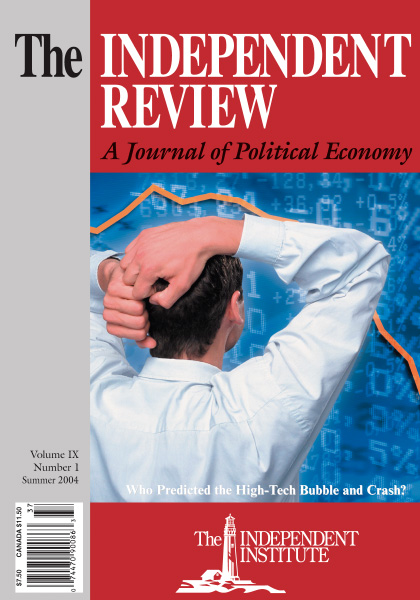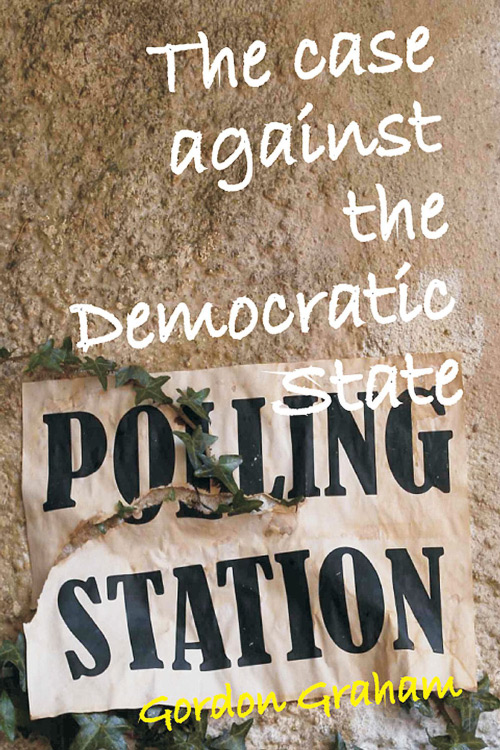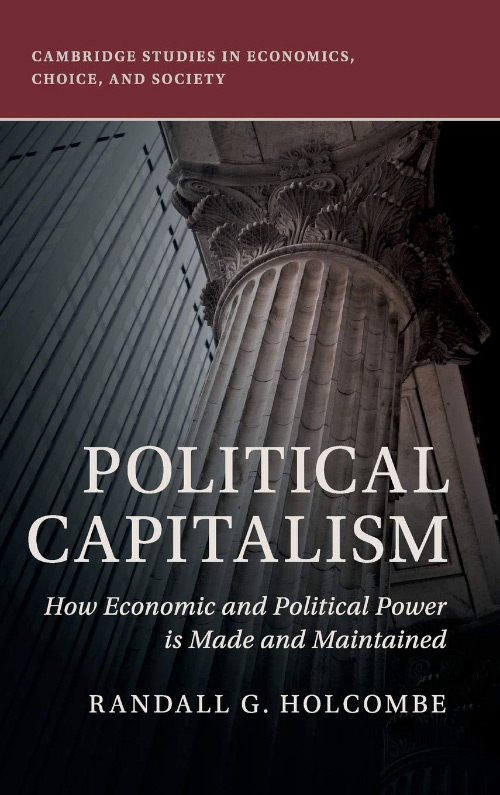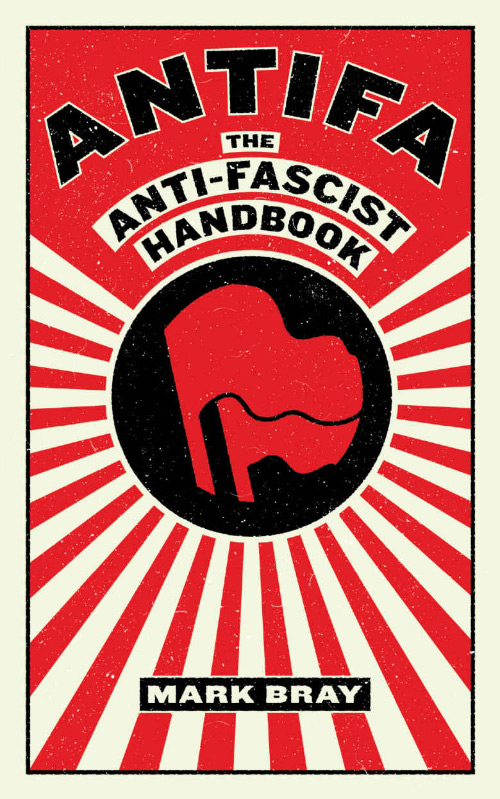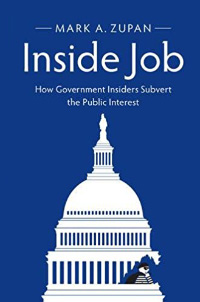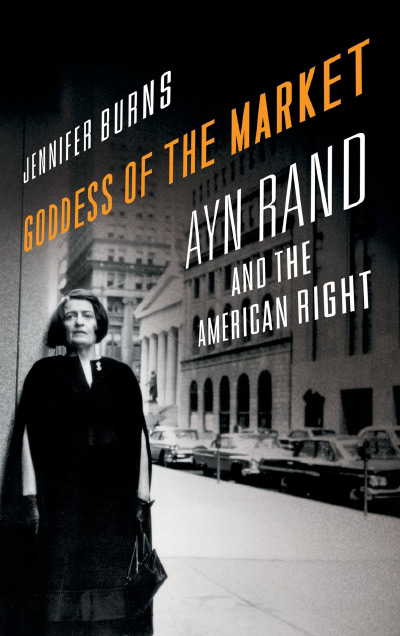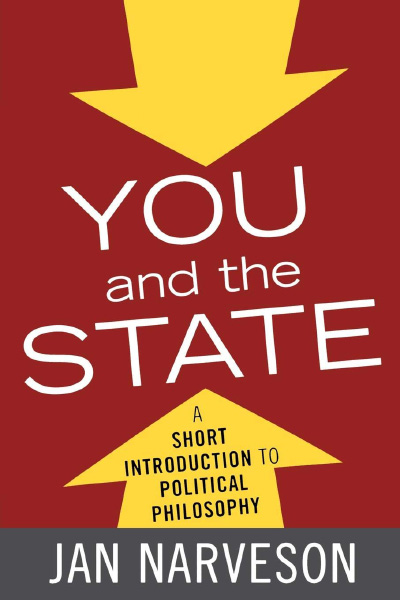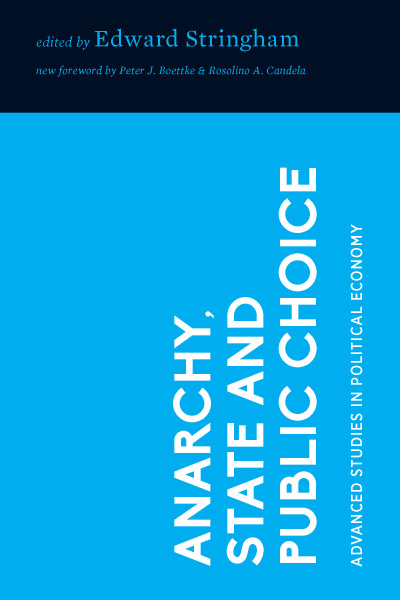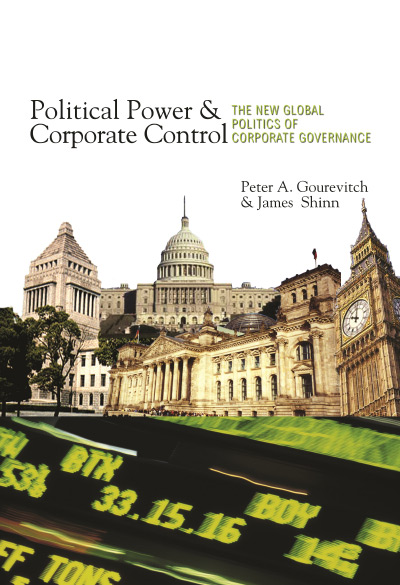This slim volume is part of a publishing program called “Societas: Essays in Moral and Cultural Criticism,” which is advertised as an attempt to revive the tradition of thoughtful political pamphleteering that reached its zenith in seventeenth-century England. Its purpose is for scholars to discuss important “moral” and “cultural” topics by communicating with the educated lay public, not just with other scholars. The editorial advisory board of the series includes figures such as John Gray of the London School of Economics, and the five volumes already published include two by Gordon Graham, one by Anthony Freeman, one by Tibor Machan, and one by Graham Allen. Although the advertisement’s claim that “each book should take no more than an evening to read” is a bit optimistic for Graham’s Case Against the Democratic State, certainly the book can be read over a weekend, and in any event the series generally and this book in particular are welcome additions to academic publishing on political and cultural thought.
As befits the intention of this series, Graham’s thesis can be put simply: the arguments typically thought to justify democracy as the best form of government in fact fail to justify it, and indeed some of the central conceptual commitments that people assume support democracy turn out to support far different sorts of government.
The book begins impressively: “The history of the last two hundred years, at least in Europe, is a story of the immense and relentless growth of one social institution at the expense of the others. I mean the State” (p. 1). This declaration is a promising start for a several reasons. First, it draws attention to a spectacular feature of human social life in recent history, a feature that has been unaccountably underinvestigated and even ignored by most political theorists. Second, it asks the reader to pay attention to empirical matters, with which many contemporary political theorists are too little concerned. And third, it capitalizes the S in state. Graham retains his practice of capitalizing that s throughout the book, subtly suggesting to the reader that the state might be a single phenomenon with a single central nature that, despite superficial variations, can itself be investigated, analyzed, and understood.
Beginning the discussion in this way also introduces an ongoing theme of Graham’s book, which is that people’s beliefs about political matters are often riddled with misperceptions and even falsehoods. This reality is reflected first and foremost, according to Graham, in their misunderstanding of the true nature of the state. What is its true nature? “I shall define its essential character in this way: the State is the monopolist of legitimate coercion” (p. 6). Despite its varied appearances, Graham argues, the state invariably has as its essence the exclusive claim to use or threaten force. This nature of the state thus immediately calls for an answer to a question rarely raised among contemporary political theorists: Is a state justifiable at all? Graham not only takes up this question but argues that most of the arguments used to justify the state in fact fail.
It is not true, for example, that absent the state all social life would be warfare, for, if it were so, then “the officers of the State—i.e. the police—could do little to counteract this” because the police would be unable to stop systematic inclinations toward “anti-social” tendencies, no matter how many of them there were (p. 11). Here Graham might also have mentioned that an assumption of systematic antisocial inclinations among human beings would also have to include the police, who are after all human beings, too; hence, asking the state to counteract such a tendency would not solve the problem, but rather would only relocate it. Graham argues further that it is simply not true that what prevents most individuals from acting in an “antisocial” way is fear of punishment; instead, he contends, most people prefer to act in ways that extend and strengthen sociality rather than in ways that destroy it (p. 11). Moreover, in those few cases “where trust breaks down,” Graham claims, “recourse to law—litigation—is a very imperfect remedy, and generally serves to make matters worse” by encouraging people to view one another as adversaries requiring legal accountably rather than as fellow human beings whom we should trust until we have reason not to (p. 12). Finally, Graham points out that “the existence of the State does not put an end to criminal activity” (p. 12, emphasis in original). He does not make the bolder if more contentious claim that state activity itself constitutes “criminal activity”—that, for example, the state lives on property stolen from citizens and on labor coercively enforced (though he hints at such an argument on p. 19)—but rather he offers the more straightforward point that no state, however “strong and efficient,” has ever completely eradicated “theft of property, fraudulent transactions, kidnapping, violence against the person and so on” (p. 12).
The latter point is instrumental in Graham’s larger argument that when engaging in political theorizing, one must keep one’s nose to the empirical grindstone. Imagined ideals are always going to be superior to any actual state, so it is pointless and even dangerous to engage in mere a priori reasoning about how one might ideally like the world to be. One must look instead at possible alternatives and compare them to one another. Proper political thought thus engages in “relative judgement[s] between good and less good,” which means that a judgment about what system of political organization ought to be recommended “must turn on empirical evidence on the balance of probabilities” (p. 13). This statement may seem like common sense, but it is in fact a refreshing departure from the practice of most political philosophers, who rarely avail themselves of actual historical and empirical evidence and who in some cases expressly disdain reliance on actual facts on the grounds that these facts might muddy the waters of pristine a priori philosophy. Facts do have a way of muddying the waters, but political thought by its nature concerns, or should concern, actual human beings living in an actual world. Political thought is not logic or mathematics, and human beings are not disembodied rational intellects. Graham is right to insist that political philosophy must deal with the real world, and his book is a needed reminder of that requirement.
The bulk of Graham’s book is aimed at making cases for three principal claims: one, anarchism has much greater appeal philosophically than is commonly thought, and the obvious objections to it fail (chap. 1); two, the arguments typically adduced in support of democracy also fail and indeed contribute to what Graham calls the “democratic myth” (chaps. 2–4); and three, the best of the realizable forms of government might turn out to be a kind of republicanism (chap. 6). Graham’s discussions are engaging and thought provoking, and they contain a number of interesting insights. Especially useful is his undermining of the idea that democracy is justified because it rests on the consent of the governed. Citizens of a democratic society cannot be said to have consented to their state and to what it does because, Graham argues, voting actually has no causal efficacy (chaps. 3 and 4). His sobering claim is that no single person’s vote ever determines or affects the outcome of an election, so if voting is to have any purpose at all for a person, that purpose cannot be to elect or remove any candidate. This point alone goes some way toward making the case against the democratic state.
I have a few quibbles with some of Graham’s claims, but I mention here only two worries about a single suggestion he makes. When discussing “alternatives to democracy,” Graham recommends republicanism, which he defines somewhat idiosyncratically as “any form of government in which the political system works in such a way that serious constraints are put on the use of State power” (p. 84). He argues plausibly that this definition is preferable to other, more common definitions of republicanism because it focuses on what really is important about states—namely, “how political systems work in practice and not how their constitutions say they ought to” (p. 85). On his view, it does not matter whether a state is officially “democratic,” “monarchical,” and so on, or whether state power is constrained “institutionally”; what matters is whether limitations on state power are “realized,” regardless of how (p. 85). Although this way of thinking papers over some issues, the distinction between institutional and realized limitations nevertheless has considerable merit. The annually released report Economic Freedom of the World, by James Gwartney and Robert Lawson (Washington, D.C.: Cato Institute), presents evidence that supports the notion that what matters is what policies are actually in place, not what is officially espoused.
The first question I have about Graham’s discussion of republicanism and alternatives to democracy, however, is, Why did he not reconsider here the anarchism for which he argued earlier in the book? Why not simply argue that no state can be legitimate—period? In the first chapter, Graham accepts a Hobbesian argument that the state is necessary to solve prisoners’ dilemma–style coordination problems, but the work of writers such as Robert Axelrod and Bruce Benson, among many others, has suggested that a coercive state in fact is not necessary to solve those problems. Graham unfortunately does not mention these arguments. The case for his republicanism would have been stronger had he done so.
The other worry is that Graham’s republicanism is liable to the same or at least to some of the same objections that Graham raises to democracy. As mentioned earlier, one part of the “democratic myth,” Graham argues, is that voting in a democracy actually gives people some say. Graham correctly points out that “the belief that elections give power to the people is an illusion. There is no coherent conception of action and will that can show ‘the people,’ either individually or collectively, to be choosing a government, or throwing one out of office when they cast their votes” (p. 86). By contrast, he claims, his republicanism not only allows the electoral process to “disperse” power (p. 87), but also gives voting an “expressive” if not a “causal” purpose (p. 89). The argument here is somewhat opaque. If voting in a “democratic” government is pointless because no person’s vote has any causal efficacy, then it would seem that the same point applies to voting under a Grahamsian republican government, even if in the latter case the intent is to “disperse” power rather than to concentrate it. The capacity to disperse power would seem to require causal efficacy as much as the capacity to concentrate it does. Moreover, it is not clear exactly what “expressive” ends voting really serves. Perhaps officially it is claimed to show patriotism or solidarity or community, but Graham has asked us to pay attention to actual effects, not aspirations. From this perspective, it would appear that if voting has any function at all, it is to give some people power over others, precisely what Graham hopes to avoid.
One suspects that in a longer book Graham would have provided cogent responses to these questions, but The Case Against the Democratic State is not intended to be a comprehensive treatise. Rather, it is an invitation to think harder about such matters than most people are commonly inclined to think. The student, the intelligent layman, and even—perhaps especially—most academic specialists would profit greatly from encountering arguments that plausibly question widespread political pieties and that introduce empirical investigation where it is clearly appropriate. Graham’s little book is an excellent candidate for inclusion on an undergraduate syllabus or on the reading list of anyone wondering what exactly the nearly universal prejudice in favor of democracy is actually based upon.
| Other Independent Review articles by James R. Otteson | ||
| Summer 2019 | Opting Out: A Defense of Social Justice | |
| Summer 2017 | The Misuse of Egalitarianism in Society | |
| Fall 2012 | The Moral Foundation of Economic Behavior | |
| [View All (8)] | ||

